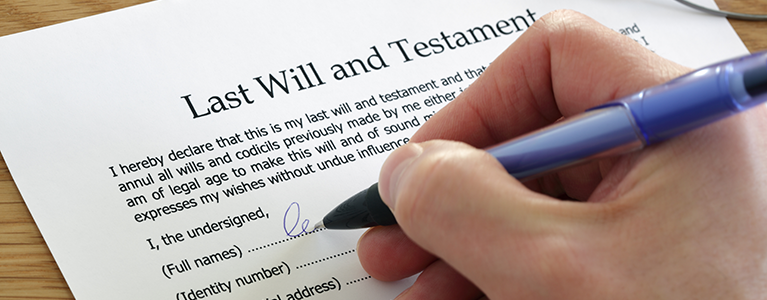A will is a legal document which sets out who’ll receive your property and possessions when you die.
When you have a valid will, you give yourself the best chance of making sure your assets go where you want them to. So you should always make a will if you have a family or if other people are financially dependent on you.

